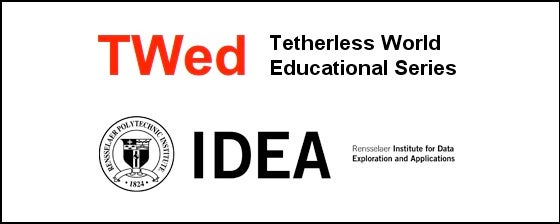
DESCRIPTION: Link prediction methods can be a valuable tool to identify new or missing facts in a knowledge graph, and in research involving the use of KGs it also can serve as a baseline method to perform tasks like item recommendation or disease diagnosis. Among the many models that can perform this task, rule-based models can be particularly useful, as they provide an inherent level of explainability and can more easily be applied to previously-unseen entities. In this TWed, we will first discuss the task of link prediction in general -- what is the task, how it might be useful to you, and what are its limitations -- followed by an in-depth look into how some rule-based models actually learn and apply rules in order to make predictions.
BIO: Sola is a fourth-year Computer Science PhD student, with research interests surrounding the use of semantic web technologies in AI applications. Sola's recent research has involved topics such as applying ontologies and knowledge graphs to perform ingredient substitutions in cooking recipes, leveraging NLP tools to form graph representations of stepwise instructions, and performing event prediction using KGs of causal knowledge. Sola's current research direction involves investigating the concept of "context" to better understand and use knowledge in semantically enabled resources.
PIZZA and salads will be available approx 5:45p
TWed Fall 2022 Schedule: https://tw.rpi.edu/about/twed
TWed Talks are informal overview discussions and tutorials on topics of interest to the Tetherless World community. TWed Talks give members and friends of these labs the chance to share tools and expertise. TWed Talks are not intended to be lectures; we expect them to be highly interactive and fun! TWed Talk leaders are always encouraged to include live "hack" activities in their session plans.
